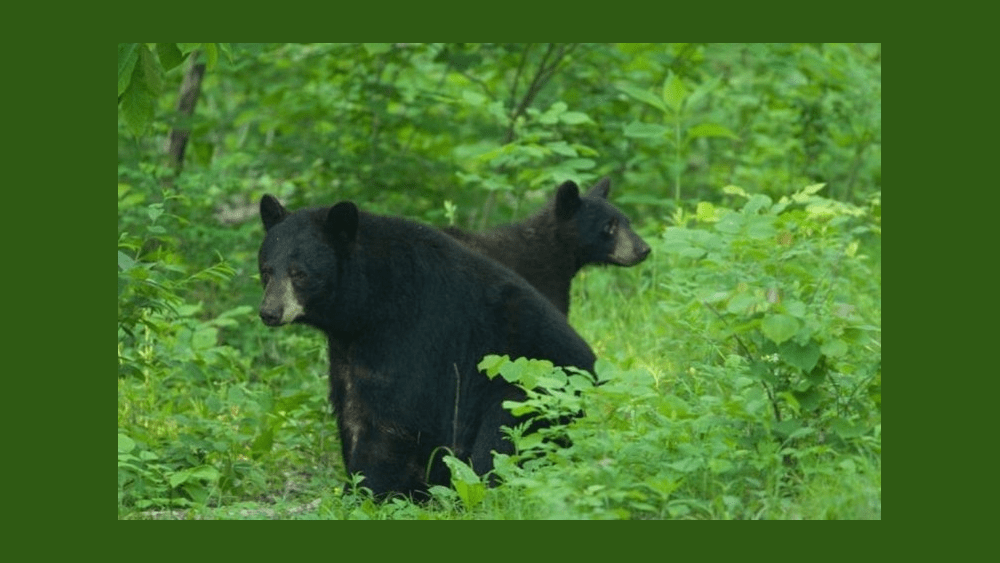
The Missouri Department of Conservation (MDC) says Missouri is home to an estimated 800 black bears with most being in the southern part of the state. As spring gets under way, these magnificent mammals leave their winter dens in search of food. MDC reminds Missourians to “Be Bear Aware.”
MDC says it is important that people remove bear attractants from their property, such as bird feeders, trash, barbecue grills, pet food and food waste.
As black bears become active in spring, they are on the search for food. Keeping areas free of attractants to allow bears to find natural foods on their own is in everyone’s best interest. If you see a bear, leave the animal alone and enjoy the sighting, but be sure to not offer it any food.
Intentionally feeding bears can be dangerous as it makes the bears comfortable around people. It also can lead bears to cause significant damage to property while searching for a meal.
“When bears lose their fear of humans, they could approach people in search of food or become defensive around food sources or territory they associate with people, which can make them dangerous,” MDC Wildlife Damage Biologist Josh Wisdom said. “When this happens, the bear cannot be relocated and has to be destroyed. A fed bear is a dead bear.”
TIPS TO AVOID ATTRACTING BEARS
Food is usually a bear’s main motivator, but that also means it can be a main source of conflict. MDC offers tips to avoid attracting black bears to possible food sources:
• Stash and latch trash. Store garbage, recyclables and compost inside a secure building or in a bear-proof container until trash pickup day.
• Keep grills and smokers clean and store them inside.
• Don’t leave pet food outside. Feed pets a portion at each meal and remove the empty containers.
• Refrain from using bird feeders in bear country from April through November. If in use, hang them at least 10 feet high and 4 feet away from any structure. Keep in mind that even if a bear cannot get to the feeder, the scent could still attract it to the area.
• Use electric fencing to keep bears away from beehives, chicken coops, vegetable gardens, orchards, and other potential food sources.
• Keep campsites clean and store all food, toiletries and trash in a secure vehicle or strung high between two trees. Do not keep food or toiletries in a tent, and do not burn or bury garbage or food waste.
Avoid conflicts with bears before damage occurs through prevention rather than dealing with a bear that already has discovered a food source. You can learn more at mdc.mo.gov/wildlife/nuisance-problem-species/black-bear-control.
TIPS WHILE OUTDOORS
While black bears are generally a shy, non-aggressive species and bear attacks are rare, follow these tips when outdoors in bear country:
• Make noise, such as clapping, singing or talking loudly, to prevent surprising a bear.
• Travel in a group if possible.
• Keep dogs leashed.
• Be aware of surroundings. If there is evidence of a bear, such as tracks or scat, avoid the area.
• Leave bears alone! Do not approach them, and make sure they have an escape route.
Report bear sightings and post photos online at mdc.mo.gov/reportbears. For more information on Missouri black bears and how to Be Bear Aware, visit mdc.mo.gov/bearaware.
MDC invites people interested in black bears in Missouri, how to Be Bear Aware, and hunting black bears in the state to join its free, online Wild Webcast on “Be Bear Aware: Missouri is Bear Country” from noon to 1 p.m. on Wednesday, May 11.
Register in advance for the free at short.mdc.mo.gov/4Uc.


